Aleppo evacuation: Thousands stranded in desperate conditions
- Published
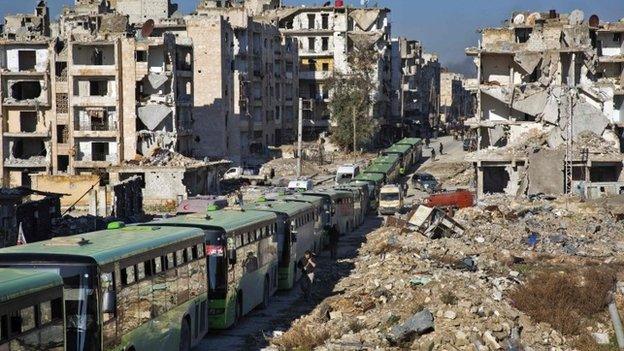
Buses wait to be boarded on the outskirts of Aleppo on Friday
Thousands of civilians are trapped in increasingly desperate conditions in Aleppo, Syria as disagreements over an evacuation plan caused delays.
Reporters described seeing people sleeping in the streets in freezing conditions with little or no food.
The delays appeared to be caused by an argument over moving civilians from two government-controlled areas in Idlib.
But Syrian state media said buses entered eastern Aleppo around noon local time to begin evacuations.
The reports said 1,200 people would be bussed out of the former rebel enclave in return for a similar number taken out of the two government-held areas in Idlib province - Foah and Kefraya.
Buses entered eastern Aleppo under the supervision of the International Red Cross and the Syrian Arab Red Crescent, Sana news agency said.
Elizabeth Hoff, the World Health Organization's representative in Syria, said the organisation expected the evacuation to begin at around 14:00 local time (12:00 GMT).
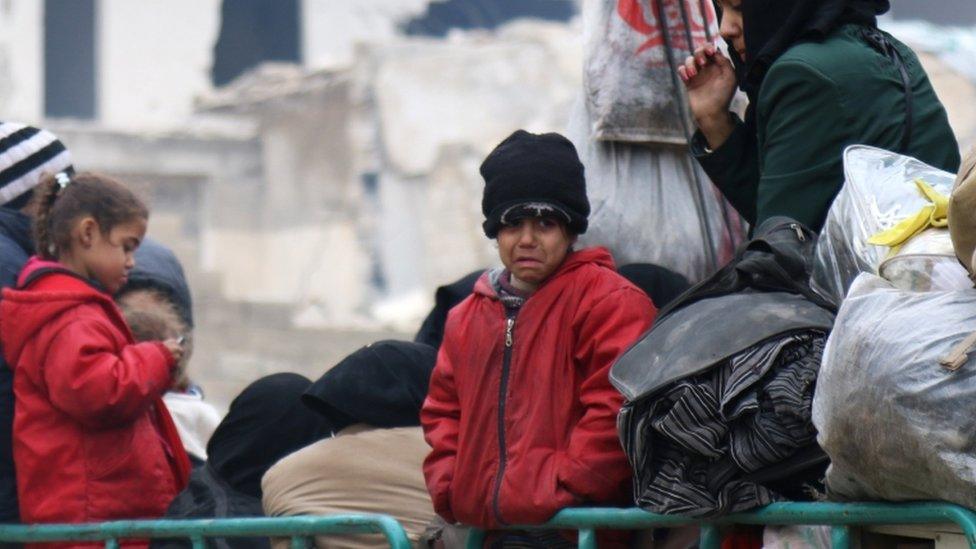
Aid workers say children are among those waiting in freezing temperatures in east Aleppo
The initial plan to evacuate eastern Aleppo collapsed on Friday, leaving civilians stranded at various points along the route out without access to food or shelter.
UK-based monitoring group the Syrian Observatory for Human Rights said on Sunday that the rebel group Jabhat Fatah al-Sham, formerly known as the Nusra Front, was preventing buses entering the besieged villages of Foah and Kefraya.
Pro-government forces had reportedly demanded that a group of people needing medical treatment also be allowed to leave the two areas.

Reports said a new agreement was reached in the early hours of Sunday but delays meant thousands of civilians remained stranded throughout the morning.
The International Red Cross said it was preparing for the rescue efforts to resume. Mounir Hakimi, the chair of Syrian Relief, told the BBC on Sunday that the charity was waiting on the Syria-Turkey border to receive civilians.
Syria crisis: Hope turns to panic in Aleppo
Abdulkafi al-Hamdo, a teacher trapped in eastern Aleppo with his young daughter, told the BBC by phone on Saturday that he did not want to leave his home but believed he had no choice.
"The weather is so cold," he said. "The children are so hungry they are crying. They are freezing. Most of them here are scared of a brutal end to the ceasefire.
"They are afraid that they will not be able to get out. This is the feeling of most people here."
UN vote
France has proposed that UN officials should monitor evacuation efforts and report on the protection of civilians and the UN will vote on Sunday on whether to send observers to the stricken city.
There are concerns that the motion may be resisted by Russia, an ally of Syria's president and a veto-wielding Security Council member.
Moscow has vetoed six resolutions on Syria since the conflict began in 2011.
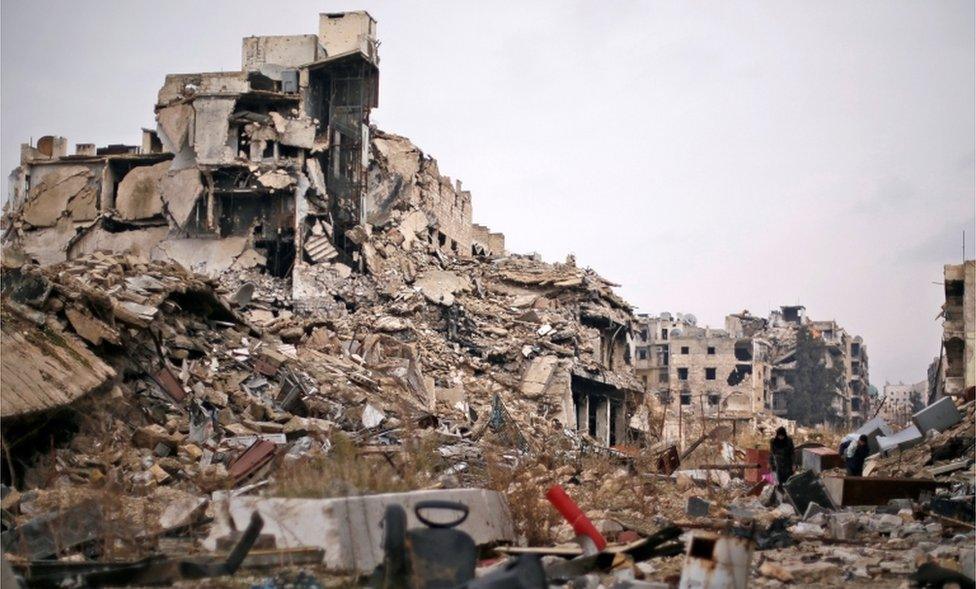
Aleppo has been reduced to rubble, with thousands of civilians trapped amid the carnage
Who is trapped in eastern Aleppo?
A mixture of civilians and defeated rebel fighters.
Among the evacuees are sick and wounded children, said the children's charity Unicef.
Some young children have been forced to leave without their parents, the charity said, and hundreds of vulnerable children remain trapped.
"We are extremely concerned about their fate. If these children are not evacuated urgently, they could die."
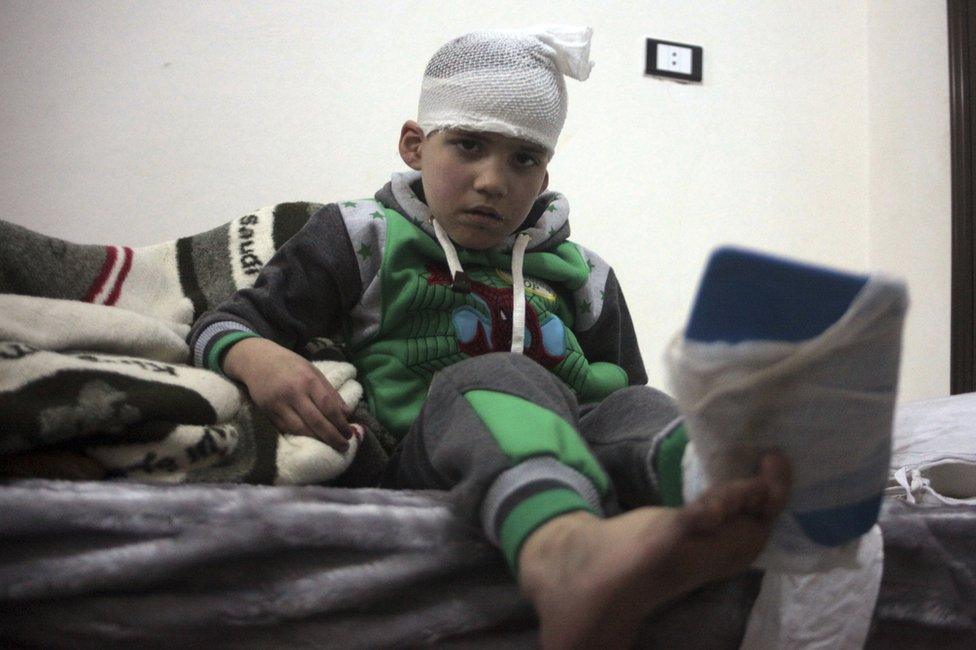
Some injured children are being treated in a field hospital near Idlib
What the UN resolution says
The draft resolution asks UN Secretary-General Ban Ki-moon to redeploy UN humanitarian staff already in Syria "to carry out adequate, neutral monitoring... and to report on evacuations from besieged parts of Aleppo and protection of civilians".
The resolution also demands the protection of all doctors, hospitals and ambulances, after reports that Syrian forces had bombed all the medical facilities in Aleppo.
The text specifically mentions the border hospitals of Atmeh, Darkoush, Bab al-Hawa and Bab al-Salamah, where many of the evacuees would be taken.
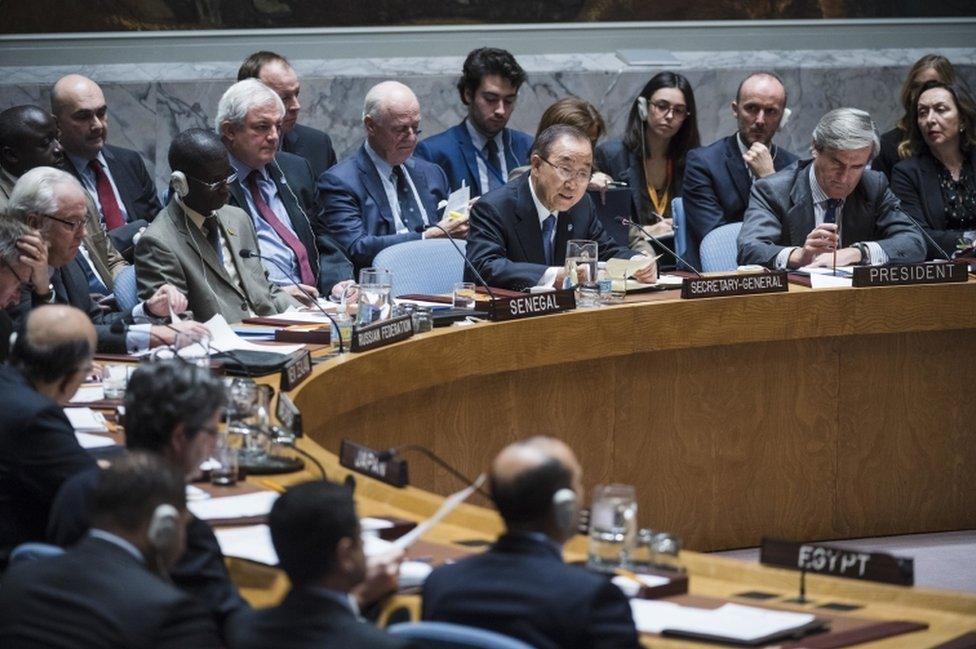
France has proposed a resolution to send UN observers to Aleppo